27 Aug2020
By Arlene Borthwick, Teresa Foulger and Kevin Graziano
Considering the ramped-up emphasis on online and remote learning, deans, department chairs, and their faculty are taking a new look at learning goals and related curricula in preparation programs to assure teacher candidates are prepared to effectively use technology for teaching and learning. Programs can no longer claim that a single “techie” faculty member or a stand-alone course on “ed tech” will provide teacher candidates with the knowledge and skills they need to be proficient with integrating technology into the learning experiences they plan.
The COVID-19 pandemic we have all experienced has clearly illustrated the need to address technology integration in more depth than siloed approaches could ever provide. An infusion approach, where technology is addressed throughout an entire teacher preparation program—from beginning to end—brings methods courses, practica, student teaching, and even liberal arts and sciences content faculty and PK-12 mentors into this framework for scaffolding candidate development.
But, wait. Just to be clear—What is the difference between integrating technology and infusing technology?
Teresa Foulger, associate professor of educational technology from Arizona State University, explains the difference in a new book, Championing Technology Infusion in Teacher Preparation: A Framework for Supporting Future Educators (Borthwick, Foulger, & Graziano, 2020):
27 Aug2020
By Nicole Dunn

As school contexts are increasingly complex, school leaders must design programming to address the needs of their diverse students. AACTE invites members to participate in the fourth session of The Wallace Foundation’s University Principal Preparation Initiative (UPPI) learning series, which is framed around the primary question: How do we prepare school leaders to lead schools towards equitable outcomes for all learners?
Register now for Equipping and Sustaining Equity-Oriented School Leaders for Diverse Contexts: Tools and Takeaways.
- Date: September 10, 2020
- Facilitator: April L. Peters, associate professor and associate department chair at the University of Houston.
- Presentation: 1:00–1:45 p.m. EST
- UPPI member-only discussion: 1:45–2:30 p.m. EST (A separate email will be sent with a registration link for this session to all UPPI member registrants.)
20 Aug2020
By Ann E. Larson
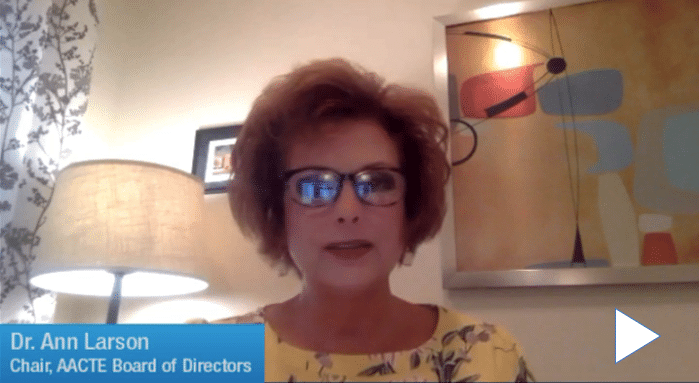
As chair of the AACTE Board of Directors, I would like to personally invite you to AACTE’s inaugural, virtual Washington Week. This year’s conference will take place throughout the month of September and will provide ample opportunity to engage with colleagues and advocate for educator preparation.
During these challenging times, it is imperative for congressional leaders to hear our voice about the support, funding, and policies needed to advance the work at our institutions and to move the profession forward. Your voice matters and is critical to AACTE’s advocacy efforts.
AACTE has designed Washington Week to cover current issues and trends impacting our classrooms, our society, and our world. Lively discussions will address important topics such as:
- Holmes Advanced Policy Course, September 2-3, and Holmes Policy Institute, September 8-10, will highlight civil rights, social justice, and equity in education. Learn more.
- Day on the Hill, September 9-10 and 15-16, will offer the latest advocacy strategies in virtual settings. Learn more.
- State Leaders Institute, September 22-23, will focus on how to combat racism in education. Learn more.
20 Aug2020
By Ward Cummings
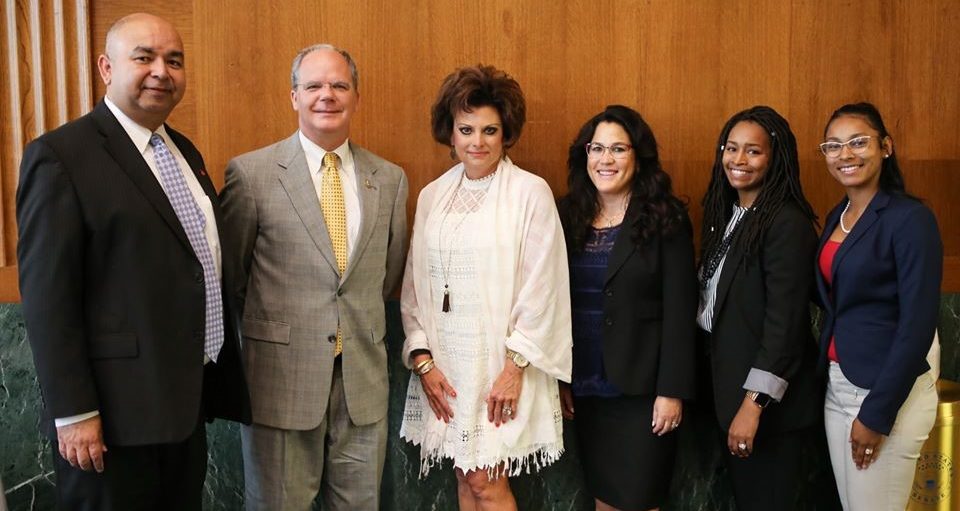
This year’s virtual AACTE State Leaders Institute will take place September 22-23, and will bring together state chapter leaders from AACTE and the Association of Teacher Educators (ATE) to enhance the presence of educator preparation at the state level. During this AACTE signature event, state leaders will focus on capacity building and augmenting their chapter’s impact through leadership development. Attendees will learn effective skills to engage with their governor’s office, receive the latest tips to strengthen the advocacy capacity of their state chapter and its membership, and enjoy networking opportunities with peers.
20 Aug2020
By Gail Richmond
This article originally appeared in the AACTE Journal of Teacher Education (JTE) and is co-authored by Gail Richmond, Christine Cho, H. Alix Gallagher, Ye He, and Emery Petchauery.
The unprecedented health crisis caused by the spread of the novel coronavirus has resulted in innumerable complications and challenges with respect to schooling in the United States and globally. With the closure of schools, parents and guardians and often older siblings have had to oversee the learning of younger, school-aged children. One consequence of what might be called “emergency teaching” or “crisis schooling” has been a recognition, largely by those thrust into such roles of how hard this oversight actually is and a call for more respect and recognition for classroom teachers. Most frequently, this call for recognition and respect has actually been in the form of a recommendation for higher pay. While such an expression of support is laudable, it once again reveals a lack of deep understanding on the part of the general public about the substantial and specialized knowledge and skills teachers need and the scope of their work as effective classroom educators.
While we have learned much about the specialized knowledge and skills that teachers must have to be effective (e.g., Phelps, 2009; Shulman, 1986), given how teaching and learning are unfolding during this COVID-19 “era,” there is much that we need to understand better about these processes (Richmond et al., 2020). At the time in which we are writing this editorial, two such examples include (a) the knowledge for online, face-to-face, or hybrid teaching and learning and (b) the cognitive, social, and emotional transitions for students (and for some, substantial trauma) to new learning platforms and different learning dynamics. There is also much to understand about the specific kinds of supports for students and for teachers that are necessary to maximize effective learning. Despite these needs, the novelty of the pandemic and the conditions students, educators, leaders, and scholars are living through call for a particular kind of pause. In this editorial, we (a) unpack this pause and the relationship to the production of academic scholarship, (b) direct scholars to the complexity of conditions unfolding during 2020–2021 academic years, and (c) encourage action-reflection as an integral part of the research process.
20 Aug2020
By Deb Lecklider
“In early March of 2020, the COVID-19 pandemic began to wreak havoc on every aspect of life as we all knew it. Events were cancelled, businesses began to close, and classrooms became virtual spaces. The world looked and felt very different from anything we had ever known,” wrote Carolyn Gassman, Butler University graduate student.
The Experiential Program for Preparing School Principals (EPPSP), an educational leadership graduate program at Butler University in Indianapolis, Indiana, canceled their summer 2020 research and study abroad learning experience to Italy due to Covid-19. EPPSP Students, practicing school teachers and educators, understood the complexity of returning to a physical building in the fall 2020 and wanted to support school leaders as they transitioned back to school.
EPPSP’s 40-year history includes experiential and relevant learning opportunities along with proficiencies that allow students to engage in real-life school leadership practices. Nationally, school leaders began developing re-entry plans and Indiana leaders were conducting plans of their own.
19 Aug2020
By Meghan Grenda
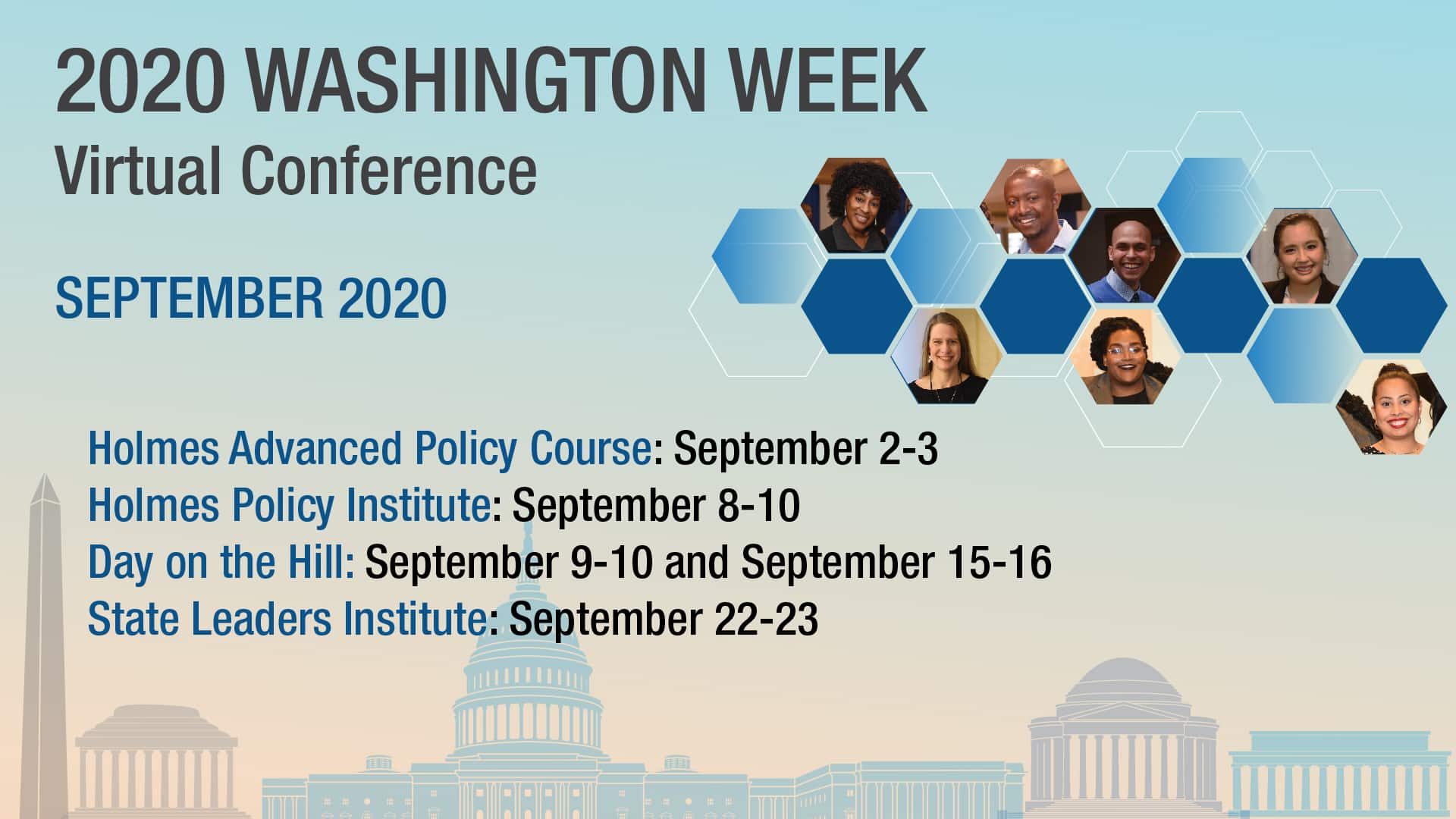
AACTE’s annual Washington Week is a premiere advocacy event for teacher preparation. Teacher educators, students, K-12 representatives, and national education organizations convene each year to discuss current federal and state policies affecting educator preparation. Attendees learn about the latest education trends and receive advocacy training to prepare for Capitol Hill visits to congressional offices, which will take place virtually this year.
Are you interested in attending this event and receiving a complimentary registration? AACTE members who submit 50% of their dues by August 31 are eligible for a complimentary second registration to 2020 Washington Week. This means if you and a colleague are planning to attend, the second registration is free once your institution submits at least 50% of 2021 membership dues.
This year’s virtual Washington Week will feature these four unique events:
19 Aug2020
By Teresa Clark
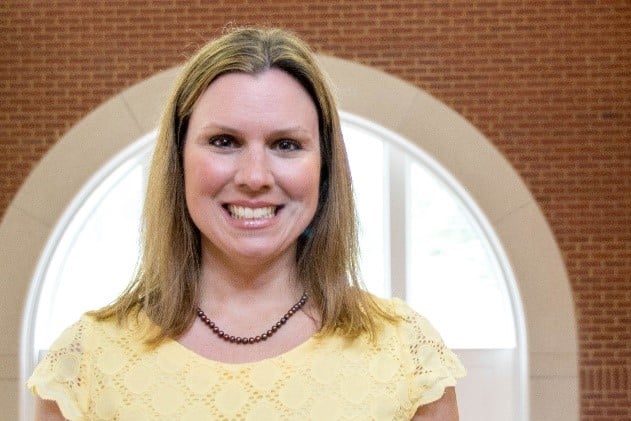 I have learned firsthand that AACTE is passionately committed to the professional development of its members. From 2017 to 2020, I served on the AACTE Committee on Membership and Capacity Building and had the wonderful opportunity to meet and network with esteemed colleagues from around the country, as well as several fabulous AACTE staff. During my time on the committee, we delved into many thoughtful discussions about how to improve our engagement with our members and bolster their participation with the organization.
I have learned firsthand that AACTE is passionately committed to the professional development of its members. From 2017 to 2020, I served on the AACTE Committee on Membership and Capacity Building and had the wonderful opportunity to meet and network with esteemed colleagues from around the country, as well as several fabulous AACTE staff. During my time on the committee, we delved into many thoughtful discussions about how to improve our engagement with our members and bolster their participation with the organization.
In addition to participating on the Membership Committee, I serve as an associate professor in the Doctor of Education in P-20 and Community Leadership at Murray State University (Murray, KY). Our College of Education and Human Services has a long, proud tradition of providing to faculty the opportunity to attend the AACTE Annual Meeting, and many of our faculty have served in leadership positions or presented at the conference. Over the last several years, my program director and I have sought those opportunities for our Ed.D. students as well—to attend, engage, and network at the AACTE Annual Meeting. More recently, our program has also been an exhibitor at the annual conference, sharing information with graduate student and new faculty attendees interested in pursuing their doctoral degrees, as well as providing materials for the many experienced members to take back to their campuses to share.
19 Aug2020
By MarÍa del Carmen Salazar
Meet Maria, a Mexican American student who entered school with a suitcase full of treasures—including her culture, family traditions, and experiences. She called her suitcase a maleta. Her teachers made it clear that her maleta was not welcome. While she was never explicitly told to leave her treasures at the classroom door, through their curricula, instruction, and assessment practices, her teachers made it known that her culture did not and have value and would hinder her learning. They gave her a new maleta, one filled with the U.S. culture; they believed this maleta would serve her better. As a result, she felt deep shame over the most essential elements of her humanity.
I am Maria—and to this day, I feel the pain of my teachers stealing my humanity.
Teacher evaluation at the center of inequity
Today, our nation is focused on inequities in our education and justice systems. While many school districts and universities have released diversity and social justice statements, the harsh reality remains that some areas within our education system are obstructions to racial equity in our schools—including teacher evaluation tools. This negligence has a profound, lifelong impact on culturally and linguistically diverse (CLD) learners. It is time for education leaders to challenge white supremacy and racial bias in teacher evaluation.
19 Aug2020
By Weade James
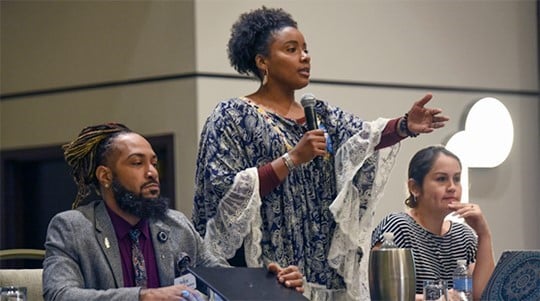
The AACTE 2020 Washington Week will feature two virtual Holmes Program events: the Holmes Advanced Policy Course, September 2-3, and the Holmes Policy Institute, September 8-10.
Holmes Advanced Policy Course: September 2-3
The Holmes Program Advanced Policy Course will engage Holmes Scholars in “Moving Towards Equity Through Advocacy and Policy,” the theme of this year’s event. Participants in the Course will explore policy and advocacy principles and address current events that focus on diversity, equity, and inclusion (DEI) in education. The sessions include a deep dive into the 4 P’s of Policy and Advocacy, led by Jane West, AACTE Consultant for Government Relations, and will conclude with an engaging Q&A forum. Scholars will also hear from congressional staffers from Capitol Hill, who will address current issues and trends in education that align with DEI policies and practices.
19 Aug2020
By Nicole Dunn

Join the final session of the AACTE Back to School Webinar Series on August 26 where presenters will discuss how educator preparation programs will use the lessons learned this past spring during the COVID-19 pandemic and apply them to the upcoming academic year. This session is already at 80% capacity, so register soon!
AACTE and EdPrepLab – Preparing educators during COVID-19: Lessons learned and new challenges for Fall 2020
August 26, 2020, 3:00 – 4:00pm
AACTE and Educator Preparation Laboratory (EdPrepLab), an initiative of the Learning Policy Institute (LPI) and Bank Street Graduate School of Education, are excited to share lessons learned during COVID on effective teacher and leader preparation strategies this past spring. Panelists discuss how educator preparation has been shaped by the experiences of the spring and the demands of the new school year. The discussion also will address how programs are continually reimagining their structures and practices even as they maintain a focus on key commitments to deeper learning and equity. Questions addressed will include: (1) How are programs applying what they learned during the spring school shutdowns to adapt to emerging conditions in the fall? (2) How are programs continuing to adapt to new challenges including remote and hybrid school start-ups, social distancing requirements, and students’ social-emotional needs? (3) How are programs positioning themselves and their teacher and leader candidates, as assets for Pk-12 schools in providing equitable deeper learning opportunities for all students?
Register Now.
19 Aug2020
By Jacqueline Rodriguez
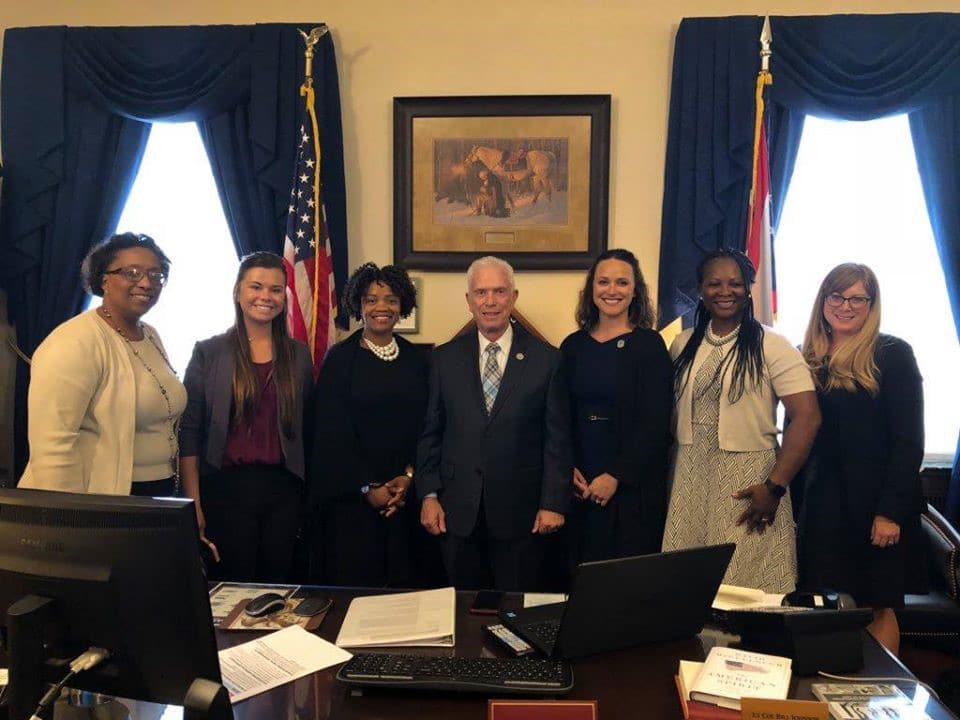
At Day on the Hill, AACTE’s premiere advocacy event during Washington Week, education leaders and students from around the country convene to advocate for teacher preparation. With the recent impact of the coronavirus and other societal trends on education, congressional leaders need to hear and learn about your successful strategies to advance the profession and ways to best address the challenges you face at your institution. Join the AACTE community for this year’s virtual event offered over a two-week period, and take advantage of the opportunity to build your advocacy skills and toolkit. Advocacy training sessions will take place September 9-10, and virtual congressional visits will be held September 15-16.
Day on the Hill: September 9-10
The first week of Day on the Hill offers attendees two tracks to choose from for part of the day that support differing advocacy skill levels. During these lively breakout sessions, you will develop and augment your skills, and learn from peers, colleagues, and government relations professionals. You will also learn about key legislations impacting education today and how to advocate for the profession with congressional leaders in a virtual environment. Congressional staff will provide special presentations on how policy is shaped and effective ways to advocate during AACTE’s virtual Hill visits that will take place the second week.
Virtual Congressional Visits: September 15-16
During the second week of Day on the Hill, attendees will join colleagues within their local state for virtual meetings with congressional leaders. Participants will be prepared with talking points, strategies to hold a congressional meeting, and key messages about how COVID-19 has impacted educator preparation programs to present to legislators. You will hear riveting greetings from invited guest politicians who will encourage your efforts in advocating for meaningful and equitable education policies.
Don’t miss this opportunity to connect with friends and colleagues, learn of national trends in education, share or discover best practices on common challenges, or develop your advocacy skills! Register now for AACTE’s Day on the Hill.
Visit aacte.org for more details about the AACTE 2020 Washington Week.
17 Aug2020
By Brian McNeill
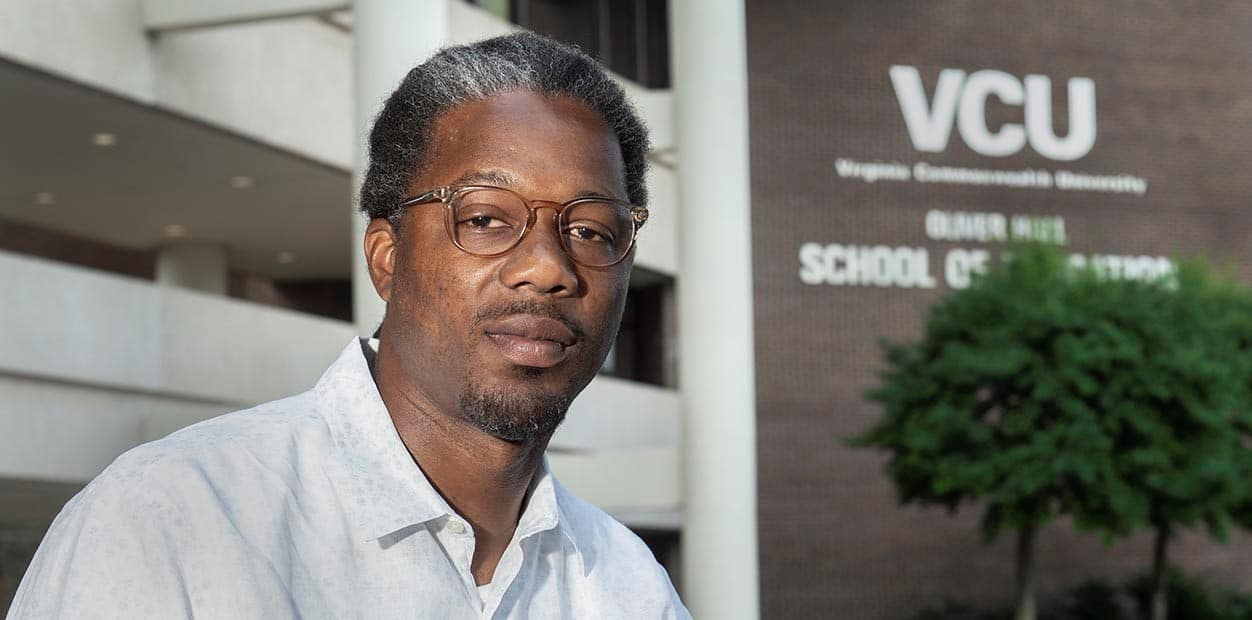
This article originally appeared on the Virginia Commonwealth School of Education website and is reprinted with permission.
As public school systems across the country are readying plans to reopen — in some fashion — this fall, a new study at Virginia Commonwealth University (VCU) is investigating the preparedness of two school districts within the greater Richmond area amid the COVID-19 pandemic.
The study, “Exploring PreK-12 Public School Systems’ Pandemic Preparedness During COVID-19 School Closures,” is led by Holmes Scholar alumnus Dwayne Ray Cormier, Ph.D., an assistant professor in the Department of Foundations of Education in the School of Education and a visiting iCubed scholar.
“I wanted to see: what do the protocols and processes look like?” Cormier said. “And I then want to see if there’s anything we can learn that can be shared throughout the state or throughout the country that would help schools prepare.”
17 Aug2020
By Mia Tuan, Tammy Campbell and Denise Juneau
This article originally appeared on The Seattle Times website and is reprinted with permission.

We see in our nation today the devastating repercussions of white supremacy and systemic racism practiced against communities of color for generations. It’s a grievous offense that our educational systems, which possess a duty to help every child achieve their full potential, often act as instruments to deny this opportunity to all.
As educators of color with decades of experience teaching and leading, we know that education is central to the elimination of racism in society and a more just future for all of us. Education can disrupt entrenched biases. It can amplify our communities’ stories of strength, and achievement and be a force for liberation and self-determination.
While there are many actions we can and should take at every level of our educational systems, the evidence is clear what our first priority must be: investing in a more racially diverse educator workforce.
Here in Washington state, half of K-12 students in public schools are youth of color. Yet only 11% of teachers are.
17 Aug2020
By Jacqueline Rodriguez

Inclusive leadership is better for schools, teachers, and all students. Every student deserves to attend a school led by a principal with the skills, knowledge, and training to promote equity for all students, including students with disabilities. Yet, general education teachers and school principals report being underprepared to effectively serve students with disabilities. Only 12 percent of a nationally representative sample of school principals and only 17 percent of general education teachers report feeling well prepared to serve and teach students with disabilities.
Support for Preparing Inclusive School Leaders During COVID-19
While the COVID-19 crisis has disrupted education for all students, students with disabilities face unique challenges in transitioning to remote learning and in their eventual transition back to the classroom. Like the pandemic and the systemic racism plaguing our nation, inequitable access to effective school leadership is more prevalent for underserved populations, including students with disabilities. A recently released brief from CCSSO, the CEEDAR Center, and the Center on Great Teachers and Leaders highlights key recommendations, examples, and resources to support educator preparation programs (EPPs) and Deans of Education in addressing the pressing challenges for school leaders posed by the COVID-19 crises.











 I have learned firsthand that AACTE is passionately committed to the professional development of its members. From 2017 to 2020, I served on the AACTE Committee on Membership and Capacity Building and had the wonderful opportunity to meet and network with esteemed colleagues from around the country, as well as several fabulous AACTE staff. During my time on the committee, we delved into many thoughtful discussions about how to improve our engagement with our members and bolster their participation with the organization.
I have learned firsthand that AACTE is passionately committed to the professional development of its members. From 2017 to 2020, I served on the AACTE Committee on Membership and Capacity Building and had the wonderful opportunity to meet and network with esteemed colleagues from around the country, as well as several fabulous AACTE staff. During my time on the committee, we delved into many thoughtful discussions about how to improve our engagement with our members and bolster their participation with the organization.




